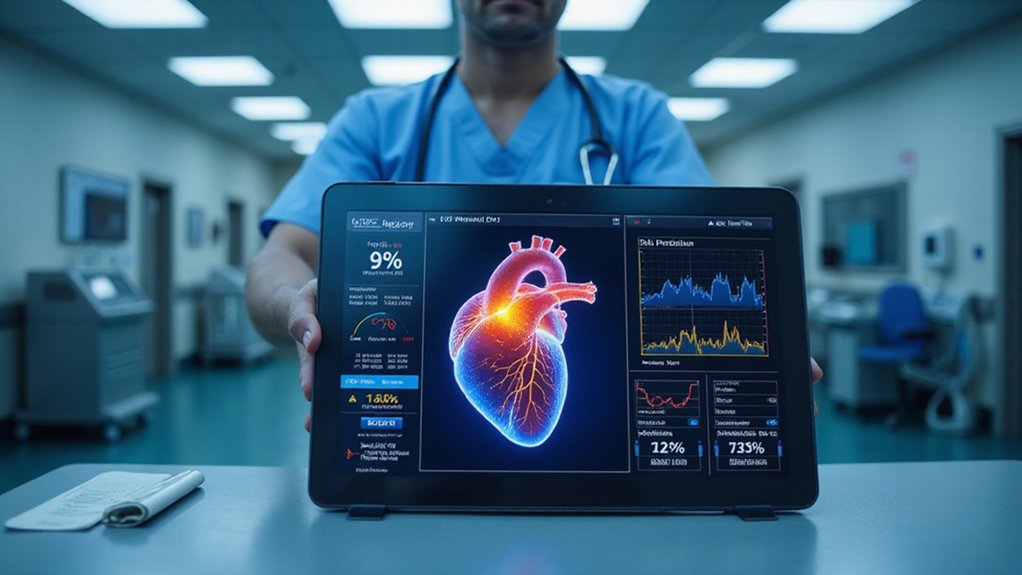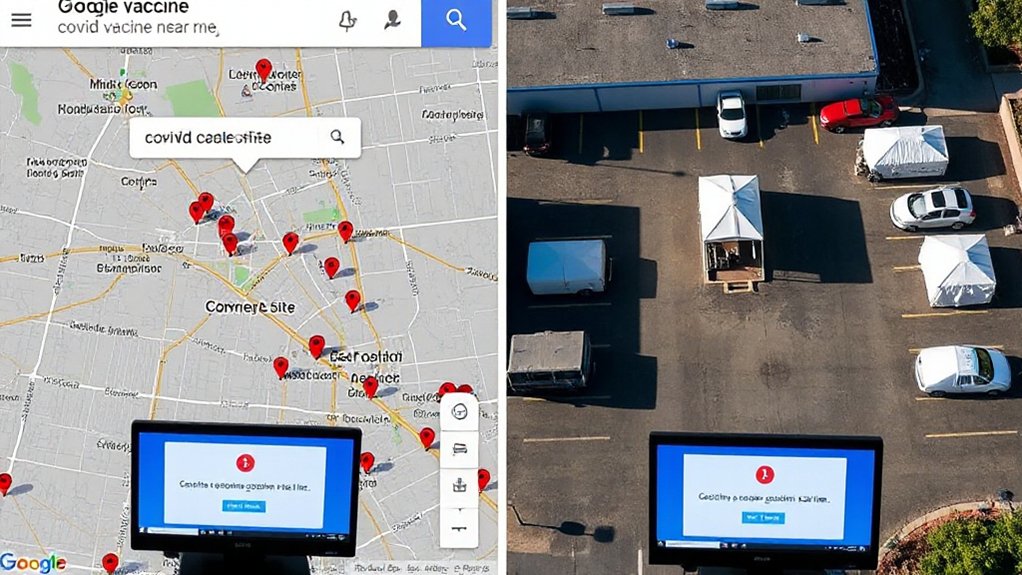A groundbreaking AI tool now predicts heart failure in seconds with up to 87% accuracy. The system analyzes patient data including age, test results, and lifestyle factors to generate risk scores. It’s detected cardiac arrests 50 minutes before they occurred in 91% of cases, while traditional methods caught only 6%. The technology helps bridge healthcare gaps, bringing expert cardiac analysis to underserved areas with basic equipment. This innovation could transform prevention and treatment for patients worldwide.
As healthcare providers around the world seek new ways to improve patient outcomes, a breakthrough AI tool for heart failure prediction is showing remarkable promise in clinical settings. This technology uses machine learning to analyze patient data and predict heart failure risk in seconds, much faster than traditional methods.
The AI system processes clinical information like age, test results, and lifestyle factors to calculate risk scores. It can even interpret CT scans to identify cardiac problems. What’s impressive is how accurate these tools are. The best models reach up to 87% accuracy using combined approaches called metamodels. The AI can also enhance image processing and automated segmentation in echocardiography for more precise volumetric analysis.
“These AI tools can predict problems before they happen,” explains one researcher. In pediatric ICUs, the technology detected cardiac arrest up to 50 minutes before it happened in 91% of cases. Doctors only caught 6% of these cases on their own.
The quick predictions allow doctors to act fast. When a patient shows warning signs, the AI can immediately flag the risk. This speed matters most for patients in critical care where every minute counts.
The technology isn’t just about speed—it’s about fairness too. Many communities lack access to heart specialists. The AI tool helps fill this gap by providing expert-level analysis anywhere with basic equipment. This means patients in remote or underserved areas can receive better care. Similar to AlphaFold’s impact on protein research, these cardiac AI tools represent a scientific breakthrough that could transform healthcare delivery.
Different AI methods show strong results. Support Vector Machine (SVM) models achieve accuracy rates up to 83%, while Logistic Regression reaches nearly 85% with certain datasets. Recent studies demonstrate that AI can detect 94.1% of valve diseases compared to only 41.2% detection by healthcare professionals using traditional methods. The tools use Random Forest, Decision Tree, and other algorithms to make their predictions.
Despite the promise, challenges remain. The systems need diverse data to work well for all patient groups. They must also fit into existing hospital systems and electronic records.
As this technology spreads to more hospitals, it could transform how doctors prevent and treat heart failure, making quality cardiac care more available to everyone regardless of where they live.
References
- https://newsroom.heart.org/news/ai-may-accurately-detect-heart-valve-disease-and-predict-cardiovascular-risk
- https://pmc.ncbi.nlm.nih.gov/articles/PMC10417090/
- https://www.ahajournals.org/doi/10.1161/CIR.0000000000001201
- https://www.healthcatalyst.com/learn/success-stories/machine-learning-in-heart-failure-multicare
- https://thedaily.case.edu/researchers-harness-ai-to-predict-cardiovascular-risk-from-ct-scans/








